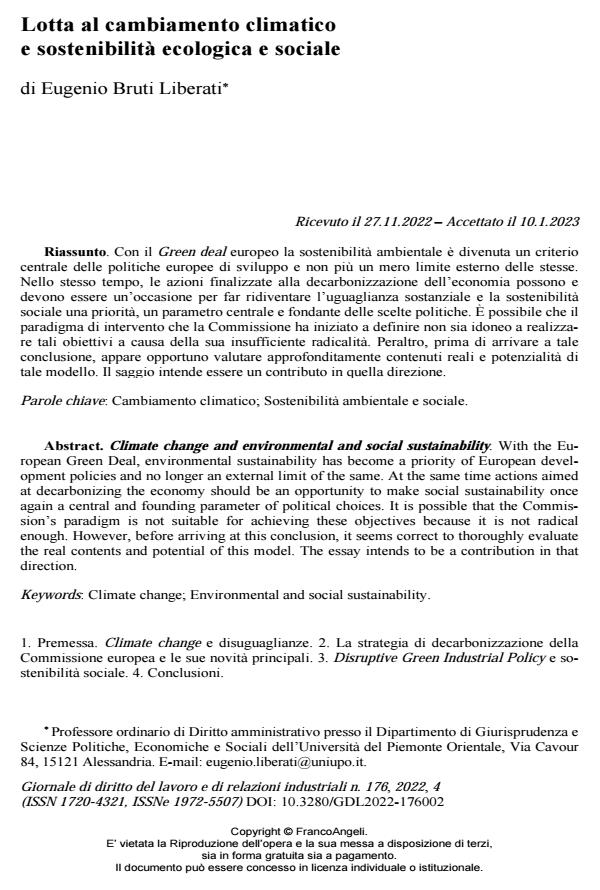Climate change and environmental and social sustainability.
Journal title GIORNALE DI DIRITTO DEL LAVORO E DI RELAZIONI INDUSTRIALI
Author/s Eugenio Bruti Liberati
Publishing Year 2023 Issue 2022/176
Language Italian Pages 10 P. 545-554 File size 186 KB
DOI 10.3280/GDL2022-176002
DOI is like a bar code for intellectual property: to have more infomation
click here
Below, you can see the article first page
If you want to buy this article in PDF format, you can do it, following the instructions to buy download credits

FrancoAngeli is member of Publishers International Linking Association, Inc (PILA), a not-for-profit association which run the CrossRef service enabling links to and from online scholarly content.
With the European Green Deal, environmental sustainability has become a priority of Europe-an development policies and no longer an external limit of the same. At the same time actions aimed at decarbonizing the economy should be an opportunity to make social sustainability once again a central and founding parameter of political choices. It is possible that the Com-mission’s paradigm is not suitable for achieving these objectives because it is not radical enough. However, before arriving at this conclusion, it seems correct to thoroughly evaluate the real contents and potential of this model. The essay intends to be a contribution in that di-rection.
Keywords: Climate change; Environmental and social sustainability.
- Trasformazioni, valori e regole del lavoro Tiziano Treu, pp.1115 (ISBN:979-12-215-0507-8)
- Impresa e transizione ecologica: alcuni profili lavoristici Valerio Speziale, in GIORNALE DI DIRITTO DEL LAVORO E DI RELAZIONI INDUSTRIALI 179/2023 pp.283
DOI: 10.3280/GDL2023-179001
Eugenio Bruti Liberati, Lotta al cambiamento climatico e sostenibilità ecologica e sociale in "GIORNALE DI DIRITTO DEL LAVORO E DI RELAZIONI INDUSTRIALI " 176/2022, pp 545-554, DOI: 10.3280/GDL2022-176002